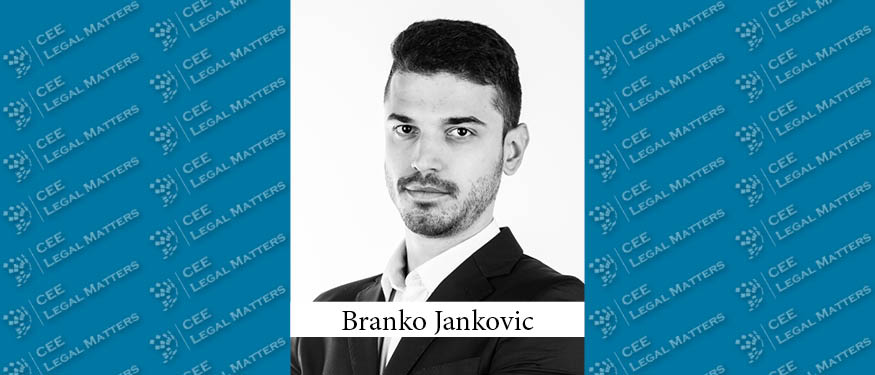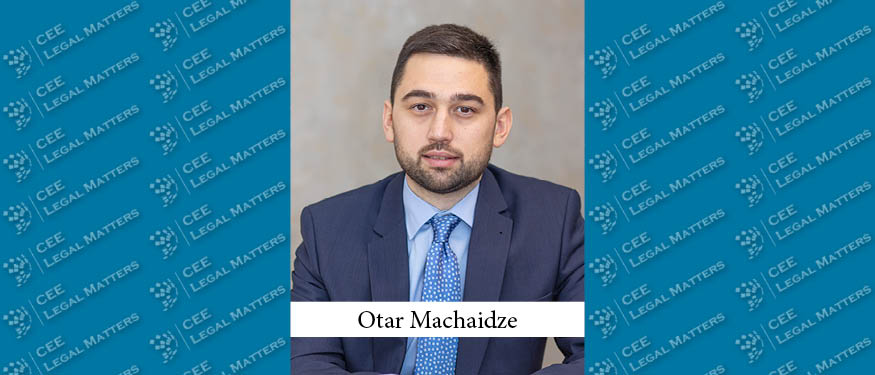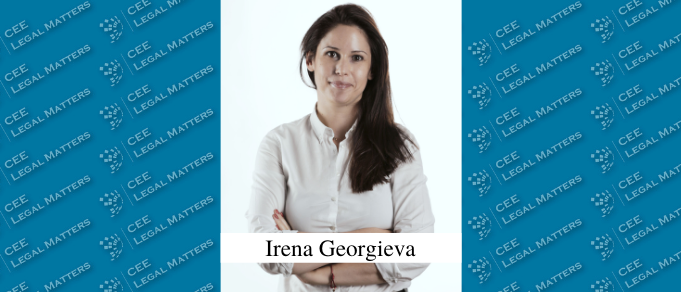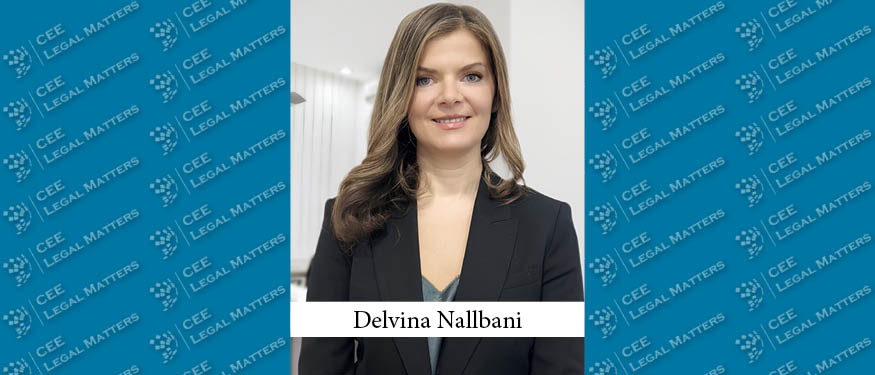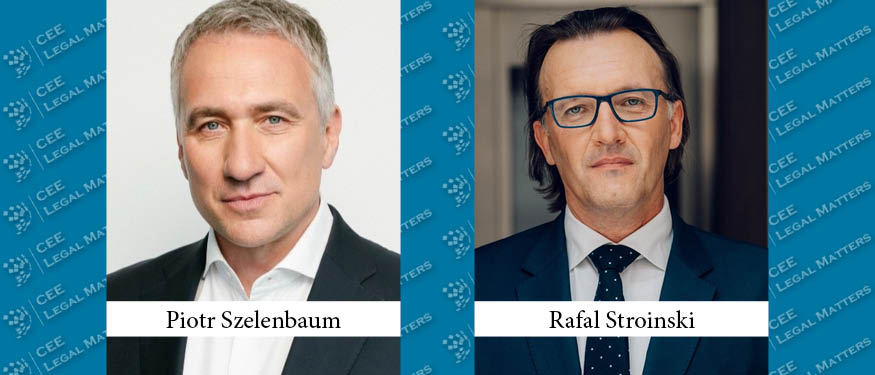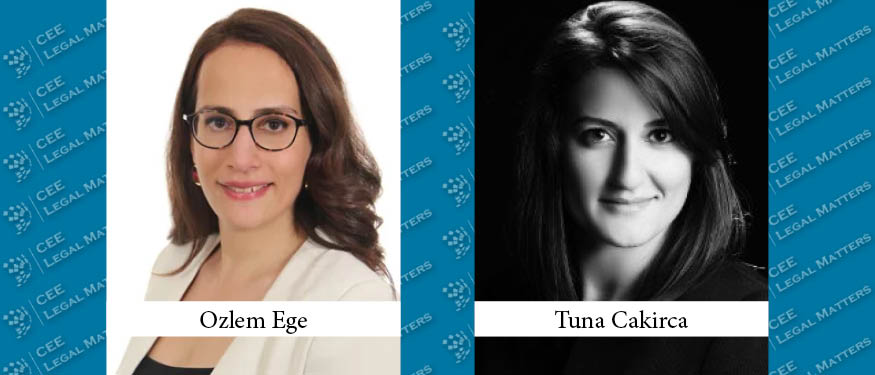Competition/Antitrust expert Sam Baldwin is a British national in Budapest’s Szecskay Attorneys at Law. Before joining Szecskay he spent eight years as an attorney in Copenhagen with the Gorrissen Federspiel law firm. He has significant experience advocating before national competition authorities and the European Commission and is successful at fending off accusations of wrong-doing on behalf of clients. He has represented companies in national court proceedings as well as at the General Court and European Court of Justice in Luxembourg.
CEELM: Run us through your background, and how you ended up in your current role with Szecskay Attorneys at Law.
SAM: My background is a little bit complicated. My parents are both British nationals who moved to Copenhagen,
Denmark, where I was born and raised. I met my wife in Hungary as I was living here for a while during my gap-year just before starting law school in 2004. She eventually came to Denmark where we lived as I finished university and started as an associate at Gorrissen Federspiel, a recognized Danish firm, where I practiced for eight years doing EU & Competition law. As a senior attorney in 2017, I went for a six-month secondment at Szecskay – one of Gorrissen Federspiel’s partner/network firms – as this was an opportunity for my wife to spend some time with the big family she has here. As it turned out, we liked life in Budapest and as there was an opportunity for me to join Szecskay’s antitrust practice as Of Counsel, we decided to stay.
With my parents’ migration from the UK to Denmark, and now mine from Denmark to Hungary, it seems my family has exercised its EU free-movement rights more than most. It is therefore particularly sad for us that the UK is set to leave the EU.
CEELM: Was it always your goal to work abroad?
SAM: Yes & no. I certainly always imagined temporarily working abroad but I had not envisaged becoming a permanent/indefinite expat. My initial reluctance to relocation was probably due to the logistical inconvenience of being based – and particularly of raising a family – in another country than your original home-country. As a child in Denmark, I remember visiting family in England at least three to four times a year, which was great but not always convenient in terms of having to travel all the time in order to see family.
CEELM: Tell us briefly about your practice, and how you built it up over the years.
SAM: I do exclusively EU & Competition law, and I have built my practice on two pillars: advocacy and operational compliance. The advocacy stuff is often simply getting clients out of trouble if they are accused of wrong-doing by antitrust enforcers. But there is just as much advocacy in complex merger control proceedings in persuading the regulator that a merger will not lead to anti-competitive effects. With the operational compliance work, it’s about advising clients in the critical grey areas of competition law (of which there are many), and over the years I have developed a particular interest in price & discount design as I have helped clients avoid various forms of pricing abuse.
I have found it important to also base my practice on active contributions to the competition law community. Back in Copenhagen I founded the Young Competition Law Professionals network, which was a result of going to competition law conferences and always seeing debates by the same handful of (certainly distinguished and learned) middle-aged gentlemen.
I also enjoy offering my two cents on tendencies within EU antitrust in articles and blogs and I regularly publish on a prominent competition law blog. I don’t know if anyone reads my posts, but at least I get to see my name in print (albeit digitally).
CEELM: How would clients describe your style?
SAM: As a huge fan of the cringe comedy tv-series The Office (the original UK version, not the US spin-off) I simply cannot resist answering this question like the character David Brent would by saying that clients describe me as “refreshingly laid back for a man with such responsibility.” But award-winning comedy aside, I like to think that clients experience me as an advisor who does more listening than talking. I generally ask a lot of questions so I can be completely in sync with the commercial and market realities the client is facing.
When advising on compliance matters, it is also important for me to calibrate my advice to the client’s appetite for risk. And by risk I do not mean the risk of getting caught, but rather – in grey areas where there is no clear legal precedent – the risk that an antitrust enforcer is not persuaded by what the client and I think are pro-competitive reasons for certain behavior. This risk needs to be weighed against the commercial downsides of being overly cautious. This is modern compliance management in a nutshell, I think.
CEELM: There are obviously many differences between the Hungarian and the Scandinavian judicial systems and legal markets. What idiosyncrasies or differences stand out the most?
SAM: One of the most notable differences in the legal market is the size of the (big) law firms. A firm of 30 lawyers or more is considered big in Hungary, whereas it is considered medium-sized in Denmark.
However, this is not due to there being fewer private practitioners in Hungary. In fact, relative to population, there are twice as many lawyers in private practice in Hungary as there are in Denmark. The difference is likely due to the fact that Danish law firms have historically grown through a series of mergers of already sizeable firms, whereas there has been relatively little merger activity in the Hungarian legal market. This may be due, perhaps, to another significant difference: the age of the firms.
By way of example, while Szecskay celebrated its 25th anniversary in 2017, Gorrissen Federspiel in Denmark is celebrating its 150th anniversary in 2019. The reason for the age difference may be at least in part that few corporate law firms in Hungary date back further than to the early 1990’s following the fall of the Iron Curtain. For the same reason, in Hungary you will often find that the founding partners whose names form the law firm’s brand are still active. Szecskay’s founder, for example, Andras Szecskay, is still going strong and is Managing Partner of the firm. Where there is no difference, however, is the high-performance culture and commitment to being the best. This seems to be the culture in BigLaw everywhere.
CEELM: How about the cultures? What differences strike you as most resonant and significant?
SAM: One cultural legal quirk I noticed immediately is the love that the Hungarian legal system has for stamping documents. Sometimes it seems like the validity of a document is directly proportionate to the number of stamps, seals, and ribbons on it (… perhaps a slight exaggeration).
As for cultural differences in general, the most obvious one is the fact that Hungarians are more direct in their communication – which certainly anyone with a British background will notice.
Hungarians call a spade a spade – or as they say, “nevezuk neven a gyereket,” which means, “we call the child by its name.” This can also be reflected in how lawyers communicate with each-other. Where a British lawyer might say to opposing counsel, “this precedent is unhelpful to your case,” a Hungarian lawyer might say “this precedent is detrimental to your case.” This cultural difference is even reflected in email salutations. In Hungarian, it is common to end your email salutation with an exclamation mark – like, “Dear Sam!” – whereas the ongoing debate among native English speakers seems to be whether to put a comma or nothing at all – i.e. “Dear Sam,” vs. “Dear Sam”. But certainly no exclamation mark!
As someone brought up with the British understatement, the direct style can take a little getting used to, although I like it. And Hungarian lawyers being more direct is of course a generalization, as the temperament and style of lawyers vary considerably like everywhere else.
CEELM: What particular value do you think a senior expatriate lawyer in your role adds – both to a firm and to its clients?
Sam: Well, many corporate law firms claim to have an international profile but few actually walk the walk. At Szecskay, quite a number of us are qualified in other jurisdictions, and we think that this helps to demonstrate to clients that the firm is truly international and outward-looking.
As for myself in particular, I benefit from a lot of prominent Scandinavian companies having significant presence here, often with regional HQs in Hungary serving as hubs for operations in CEE. Our Scandinavian-based clients really value our ability, for example, to provide legal compliance-management solutions that can bridge the Scandinavian way of doing things with the desire to expand and grow their business in CEE.
CEELM: Do you have any plans to move back to Denmark?
SAM: No, not at the moment. If I were to return, it wouldn’t be for the climate.
CEELM: Outside of Hungary, which CEE country do you enjoy visiting the most, and why?
SAM: Prague is certainly beautiful. And so is Vienna, where I also have some in-laws, so plenty of excuses to visit. That said, there are so many places that I have unfortunately not yet been.
CEELM: What’s your favorite place to take visitors in Budapest?
SAM: One of the first places I take visiting family and friends is the Margaret Bridge, which connects Buda and Pest across the Danube and is also connected in the middle to the very green Margaret Island. The island is great for strolls during the day, and at night it is fantastic to stand on Margaret Bridge and look down the river at the Parliament Building, Buda Castle, and the Chain Bridge – all of which are generously lit up after dark. At Szecskay we have actually published a little book called Our Budapest in which all senior lawyers have indicated their favorite places in the city. If anyone is interested, they are welcome to email me and I will send them a copy.
This Article was originally published in Issue 6.4 of the CEE Legal Matters Magazine. If you would like to receive a hard copy of the magazine, you can subscribe here.







